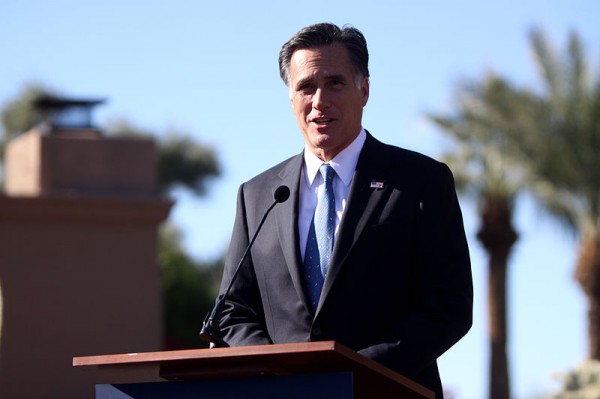Understanding Romney’s Plan for Regulatory Reform

 A number of Governor’s Romney’s proposals have been criticized for not being specific enough. One area where he has been quite specific, however, is regulatory reform. Romney’s plan for regulatory reform would permanently change the way the government regulates everything from consumer fraud to airplane safety to toxic chemicals. Here are his two major proposals, how they would work, and their pros and cons.
A number of Governor’s Romney’s proposals have been criticized for not being specific enough. One area where he has been quite specific, however, is regulatory reform. Romney’s plan for regulatory reform would permanently change the way the government regulates everything from consumer fraud to airplane safety to toxic chemicals. Here are his two major proposals, how they would work, and their pros and cons.
#1. Impose a regulatory cap of zero.
How it would work. Suppose that EPA decides a pesticide is dangerous and that a ban would cost industry $100 million. In order to pass the ban, the EPA would have to repeal some other regulation (which might or might not involve the same industry) costing $100 million. Similarly, if the FAA wanted to impose a new airline safety rule, it would have to repeal an existing one.
Pros. The regulatory budget would freeze the total cost of regulation to society. The amount of resources that businesses collectively would have to devote to regulatory compliance would not change over time. Also, the regulatory cap might cause agencies to prioritize better by eliminating marginal regulations in order to enact more beneficial ones.
Cons. The regulatory budget could force agencies to sacrifice beneficial existing regulations to deal with urgent new situations. This could require making tough choices between protecting different groups of pollution victims or between limiting consumer fraud by banks versus improving banks’ financial stability. Also, it would double the complexity of the regulatory process since there would have to be a proceeding to repeal one rule as well as the proceeding to adopt another.
#2. Require Congressional approval for all major new regulations.
How it would work. Suppose the FAA decides that airlines need to adopt expensive new safety measures. Currently, the main checks on the agency are Presidential oversight and review of the final rule by the courts. Under the proposal, a new check would be added. The regulation would not go into effect until it was approved by Congress and signed by the President. A fast-track procedure would be used so that the proposal wouldn’t get stuck in committee or filibustered.
Pros. The procedure would ensure that Congress, not just agencies controlled by the President, plays a role in approving new regulations. This would shift power away from the White House and give Congress more of a role, providing a check on executive authority. It would also provide another opportunity for the public to have input, in addition to the existing right to file comments in the rulemaking proceedings.
Cons. Congress may not have the time or expertise to delve into the technical issues. Major rules often involve very complex scientific and economic issues in areas where Congress does not have expert staff. The formal records in the proceedings can involve tens of thousands of pages of evidence and debate, which Congress could not possibly review. The process might improve democracy or could just give special interests another opportunity to block rules. The courts might back off from review of regulations once they had received congressional approval, which could be either good or bad.
Both of these proposals would probably make it much more difficult to create new regulations. So whether judgments about the proposals are likely to vary, depending on whether you think we need new regulations or already have too many.


